Key takeaways from the BBC London election debate
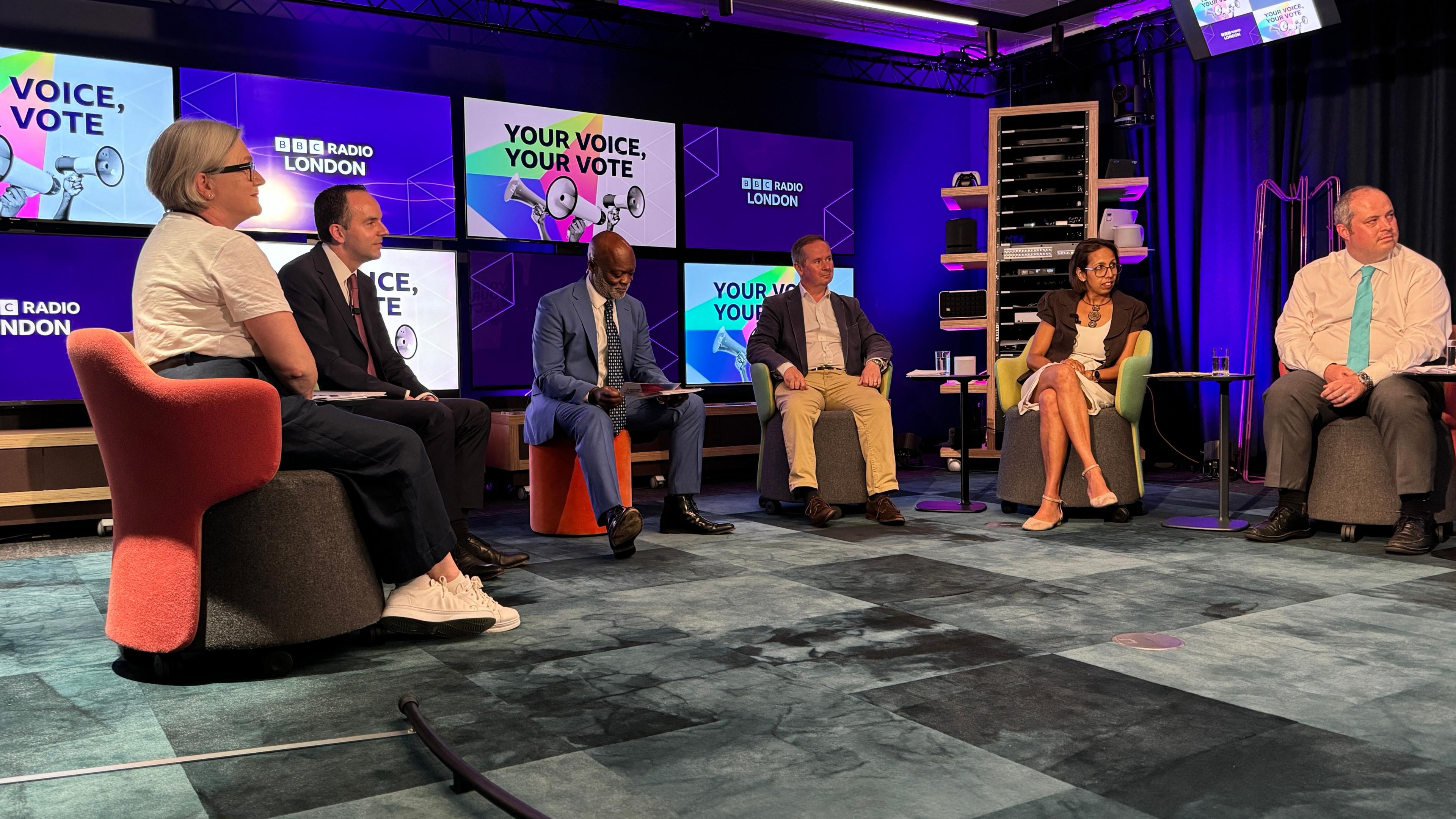
Eddie Nestor, centre, hosted, from left, Caroline Russell, James Murray, David Simmonds, Munira Wilson and Alex Wilson
- Published
With just a week until election day, London representatives for the Conservatives, Labour, the Liberal Democrats, the Greens and Reform UK faced tough questions on the issues affecting residents in the capital at the BBC Radio London election debate.
The panellists were Labour's James Murray, former deputy mayor of London for housing, Caroline Russell, leader of the City Hall Greens and chair of the Police and Crime Committee, and the Conservatives' David Simmonds, formerly a councillor in Hillingdon.
Munira Wilson, representing the Liberal Democrats, and Alex Wilson, from Reform UK and a member of the London Assembly, also took part.
'It's beyond a housing crisis'
Islington resident Heidi Rice told the panel London's biggest issue was arguably affordable and secure housing.
She asked them: "How important is the housing emergency and what's being done for low and middle incomes?"
Another resident who contacted BBC London through Your Voice Your Vote, Jay, added that rising housing costs had pushed him into debt.
"Rent rises have made our mortgage go up by 50%, with higher utility bills and the cost of living, most months we're in deficit. What's being done to protect the working class?" he asked.
The Conservatives' Mr Simmonds said: "We've achieved our one million target of building new houses.
"The next stage is making sure local authority leadership is able and effective in delivering more."
Labour's Mr Murray said: "There are so many different elements to the housing crisis.
"Working for the mayor of London, we always felt that we had our hands tied behind our back because we needed the government to be supportive."
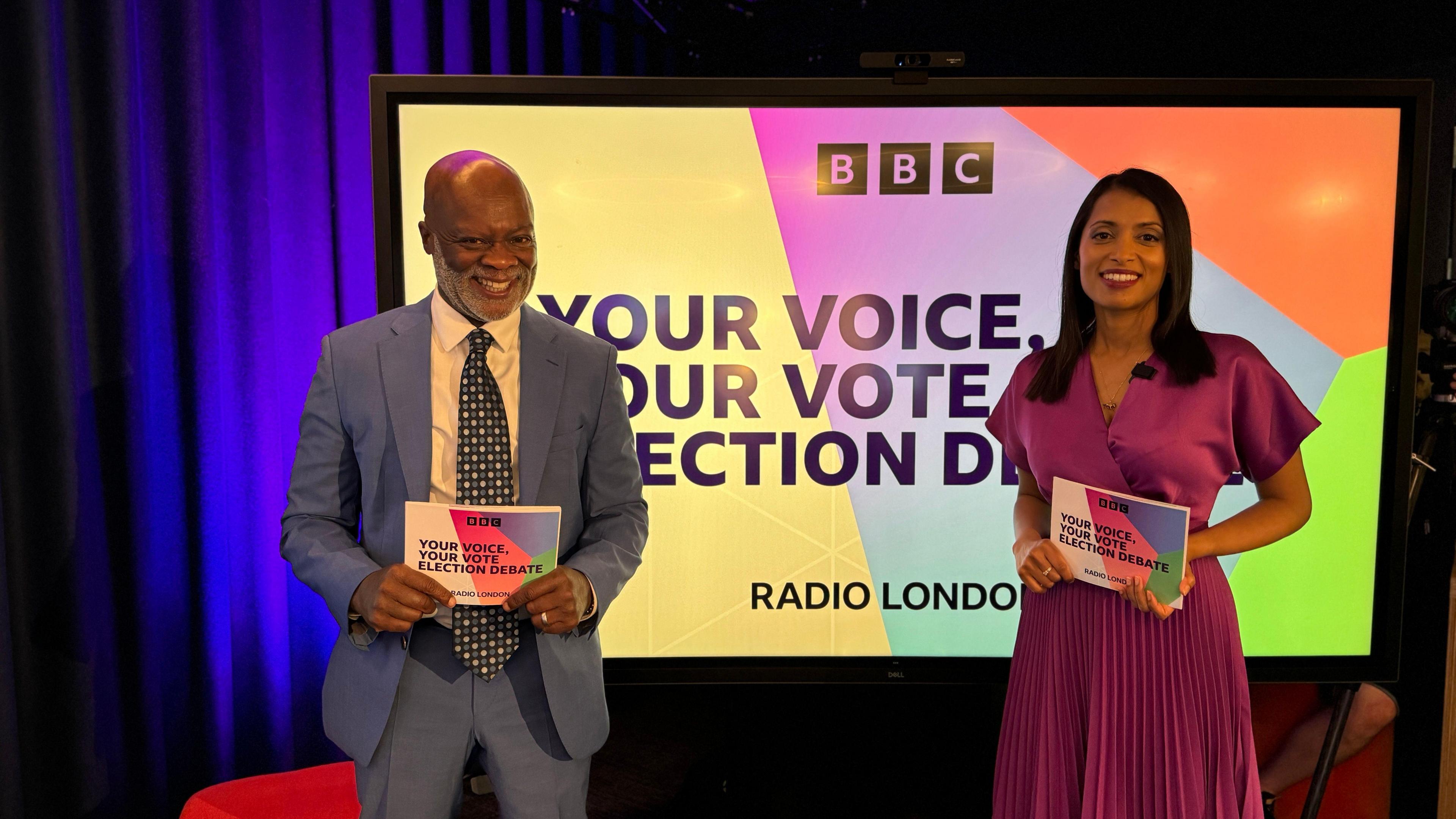
BBC London presenters Eddie Nestor and Luxmy Gopal put the questions to the panel
He added: "Labour nationwide will build 1.5m houses, of these, there's a focus on affordable housing and making sure the private renting reforms go through.
"We'd scrap Section 21 no-fault evictions, and that would give greater security to renters."
Presenter Eddie Nestor asked Reform UK's Mr Wilson: "You don't believe in scrapping Section 21, is that right?"
"We need to build, on all types and a mixture of all tenures - to help people whether it's getting on the ladder or social housing," Mr Wilson explained.
"We want to speed up decision-making and speed up delivery.
"The more restrictions you place on landlords, the less attractive it is for prospective landlords."
Ms Russell said London's housing situation was "beyond a crisis point" and that in order to ease it, the Greens believed the Right to Buy scheme must end.
"It's left many estates in London in the hands of private landlords; it's become rent-to-buy-to let."
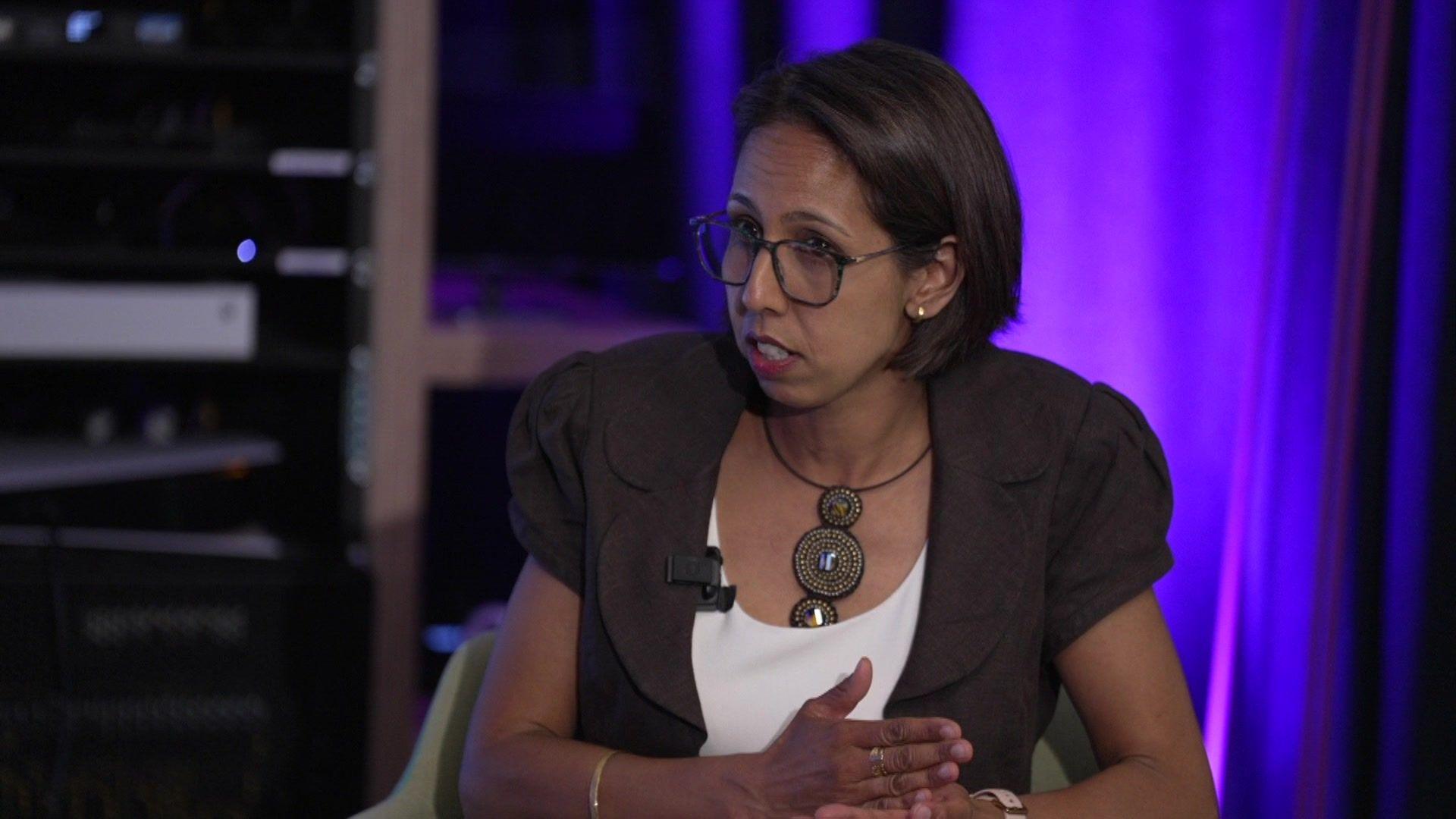
Munira Wilson says youth centres are key to tackle London crime
But she agreed with Alex Wilson that building more homes would alleviate the situation.
"We also think that we should be buying homes for social rent," she added.
Munira Wilson said the Lib Dems wanted to build 150,000 new social homes across the country.
"We have to reform how we build houses. We have to have a 'use it or lose' policy within local authorities. There's too much 'land banking' by developers," she said.
"I'd like to see much better use of brownfield sites, Transport for London and Network Rail land. Publicly owned buildings like police stations shouldn't be sold to the highest bidder, they should be redeveloped for the community."
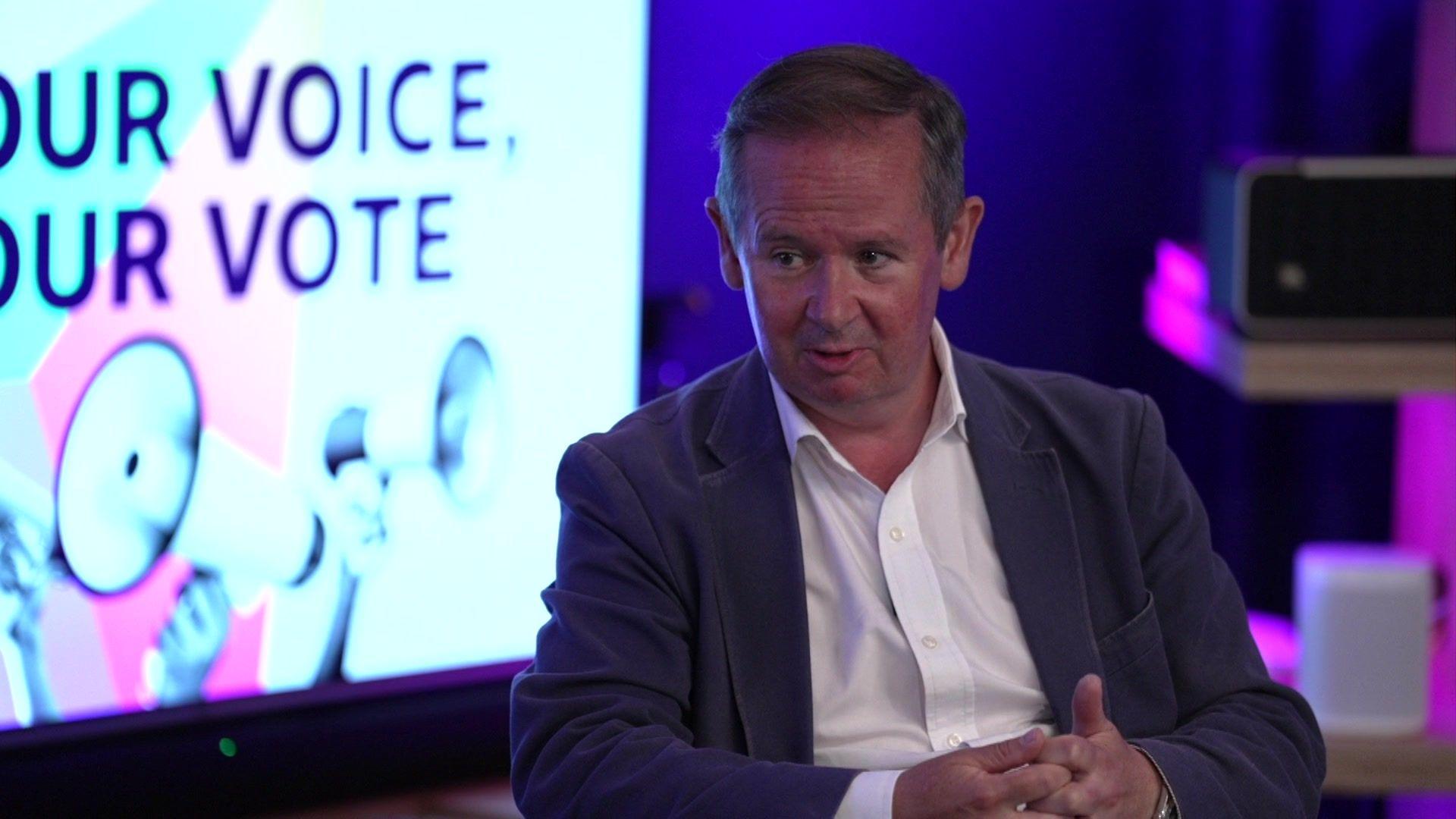
The Conservatives' David Simmonds said they achieved some of their housing targets
Is there a war on motorists?
Eddie next asked whether low-traffic neighbourhoods that have sprouted across London, and the Ultra Low Emission Zone (Ulez) expansion last August, are part of a "war on motorists".
The Greens' Ms Russell said: "There certainly is not a war on motorists. The motorists have a had a boost throughout this Conservative government. People who pay fares for Tubes and buses have seen costs go up.
"But also, there isn't any space on our roads. We need clean air, safe conditions to get around. People need other options than cars."
Tory Mr Simmonds said: "We do need options.
"People in London, particularly in the suburbs, don't have options. Some don't have access to the Tube or rail or have a reliable bus service.
"They're dependent on their car to get around and all they've been offered is Ulez and the threat of road pricing."
Mr Simmonds added that the Conservatives would maintain the freeze on fuel duty, stop the expansion of Ulez and bring it back to its original limits.
Mr Murray did not comment but Labour recently said on the topic: "Labour is on the side of drivers.
"We will leave decisions on safe school streets and local traffic measures to local communities - not politicians in Westminster.”
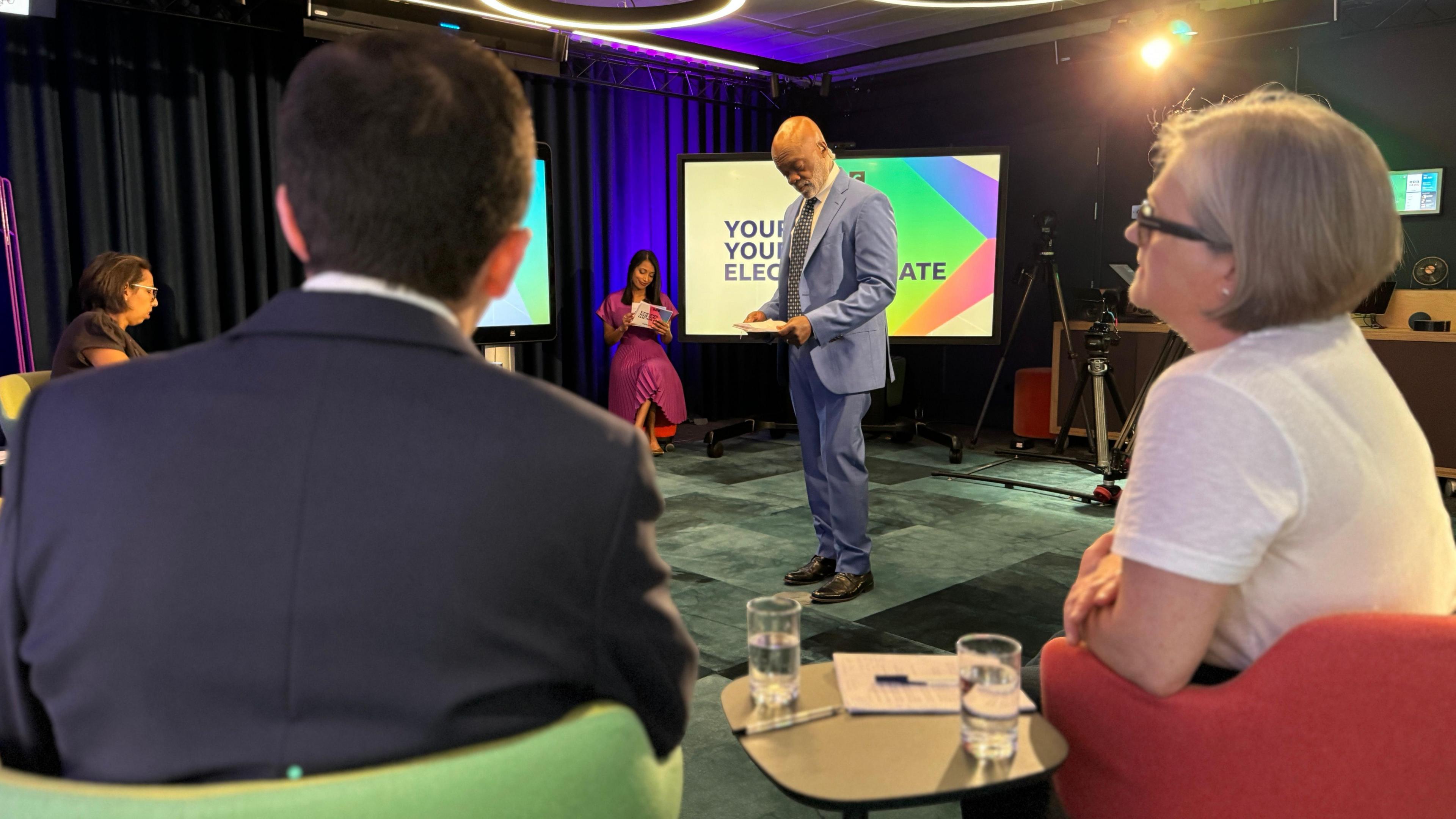
Labour's James Murray did not comment as to whether there was a "war on motorists" while the Greens' Caroline Russell said there "certainly" was not one
More police officers and safe spaces
Ellis, who is from Enfield, asked about safe spaces in the capital, while Fatima said stabbings and phone thefts were out of control, with a need for more police officers on the streets.
"Alex, you would increase stop-and-search?" Eddie asked the Reform UK representative.
"If you know that you carry a weapon and that you're likely to be stopped, and that there'll be consequences for that, you should be less likely to do that," Mr Wilson replied.
"It has to be intelligence-led and not based on racial profiling."
The Greens' Ms Russell then came in, saying: "No, that's not right. Focusing on stop-and-search is not going to make young people feel safe."
She said that while working on London Assembly's Police and Crime Committee, she had learned that what young people wanted the most to make them feel safer were youth centres.
"Safe spaces, as Ellis mentions," Ms Russell said.
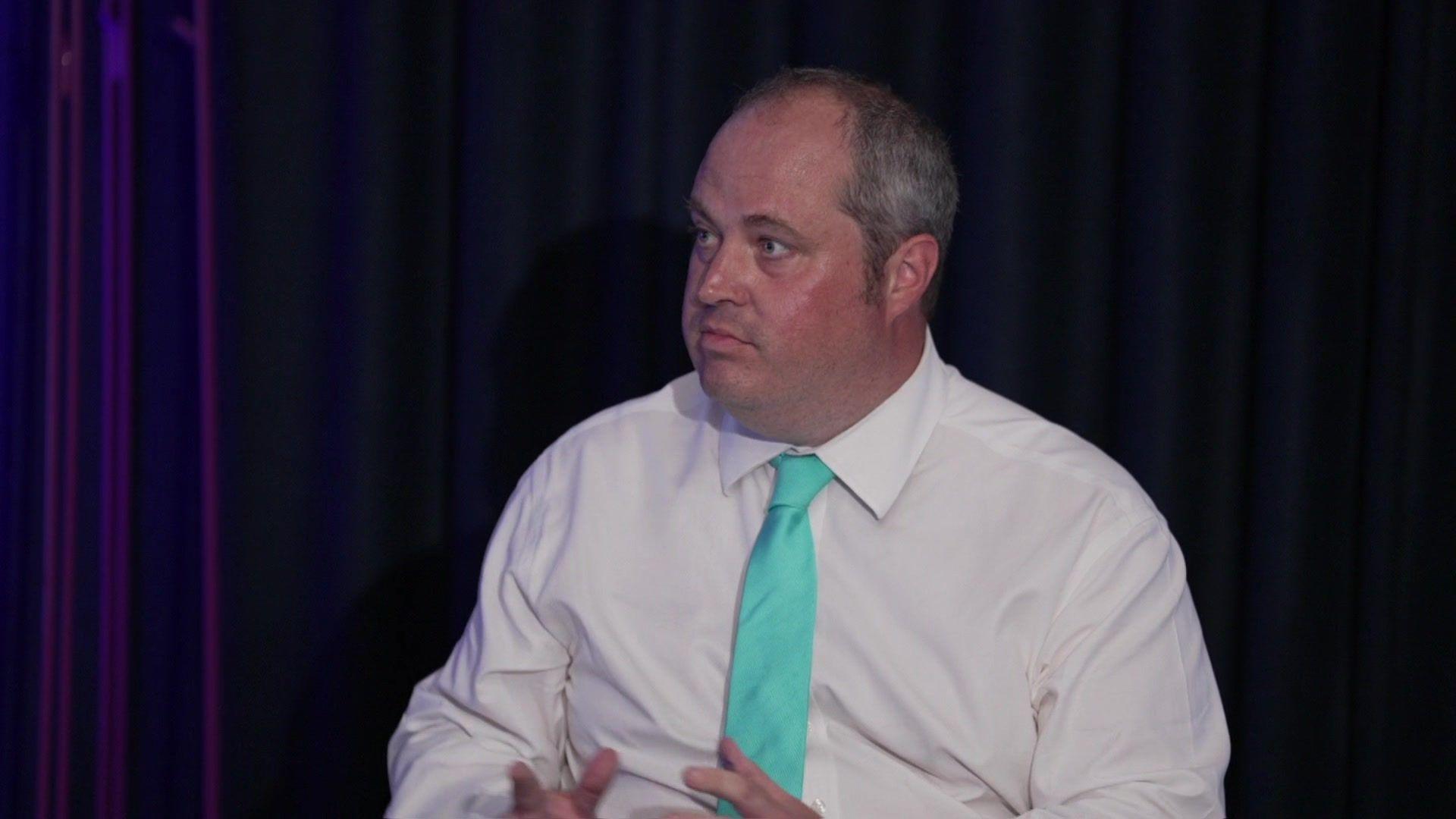
Reform UK party member Alex Wilson believes London needs more stop and search
"Youth services have faced years and years of cuts, as a consequence of cuts to councils by the Conservative government," said Ms Russell.
"You cannot arrest your way out of dealing with violence."
Lib Dem Ms Wilson said the party's focus would be on "intelligence-led community policing".
"Stop-and-search is important but suspicion-based stop-and-search leads to racial profiling that undermines trust and confidence in the police, and that is not helping with tackling knife crime," she said.
The Conservatives' Mr Simmonds said he did not believe London mayor Sadiq Khan was fit to be head of the Met Police due to his "abject failure" to crack down on crime.
Labour's Mr Murray said trust in the Met had been undermined due to recent cases involving misconduct and vetting failures.
"Mandatory national professional standards" would be implemented by the party," he said, adding that "at the heart of our model is policing by consent".
You can listen back to the full debate on BBC Radio London on BBC Sounds. A shorter version will on be BBC London news at 18:30 BST and available on the iPlayer afterwards.
Listen to the best of BBC Radio London on Sounds and follow BBC London on Facebook, external, X, external and Instagram, external. Send your story ideas to hello.bbclondon@bbc.co.uk, external
Listen to BBC Radio London for the full debate
- Attribution